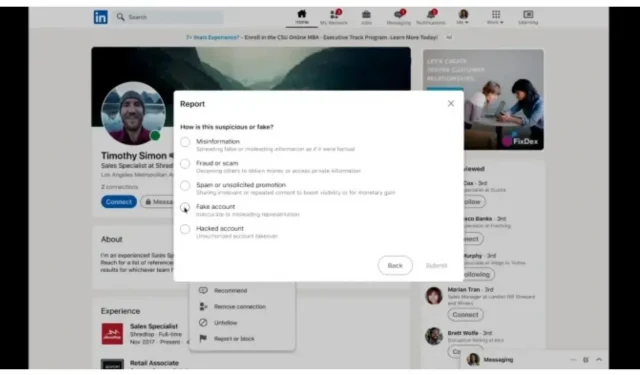FBI calls LinkedIn cryptocurrency scam a ‘serious threat’

Cryptocurrency scams are on the rise on LinkedIn. The platform reminds you of some general security rules.
If you’re used to chatting with strangers on LinkedIn, you need to be especially careful today. According to a CNBC report, the company acknowledges “the recent rise in scams on its platform”and this time around, scams are often associated with investing in cryptocurrencies. For FBI Special Agent Sean Ragan, who is in charge of the San Francisco and Sacramento offices, this is even a “significant threat. “
Cryptocurrency scams are on the rise on LinkedIn
CNBC explains that scams often start with someone claiming to be a professional and reaching out to LinkedIn users. He then offers to help them make money through crypto investments. He first directs them to an existing investment platform, but “after gaining their trust for several months, he offers to transfer funds to a site controlled by a scammer.”And then the money “disappears from the account.”
According to several victims interviewed by CNBC, the fact that they trusted the LinkedIn platform increased the credibility of these investment offers. Sean Ragan said that “the FBI is seeing the rise of this type of investment scam”, quite different from “the age-old scam in which the perpetrator pretends to be romantically interested in the victim in order to convince her to give him money.”
The platform reminds of some general security rules
In a statement, LinkedIn encourages users to report suspicious profiles. Oscar Rodriguez, head of trust, privacy and fairness, said: “Trying to determine what is fake and what isn’t is incredibly difficult.”The platform encourages users to “only communicate with people you know and trust” and “to worry… about people asking you for money that you don’t know personally.” The company added that “this includes people asking you to send them money, cryptocurrencies, or even gift cards in order to receive credit, a prize, or some other reward.
LinkedIn does not solely rely on its users and their reports to protect itself from fraud on its platform. “While our defenses catch the vast majority of abuse, our members can also help keep LinkedIn safe, secure, and professional,”Oscar Rodriguez wrote in a press release. LinkedIn also reports that “96% of detected fake accounts and 99.1% of spam and other scams are detected and removed by our automated safeguards.”
Leave a Reply